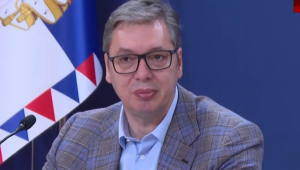Media Association, ANEM, AOM, IJAV, IJAS, Local Press, Transparency Serbia and JAS have accepted the goals defined in the Strategy for the Development of Public Information System, adopted by the Government of Republic of Serbia in January 2020, including the activities related to its implementation from the Action Plan for implementing Strategy from December last year, firmly believing that the baseline for drawing up the Draft will be precisely the one defined in the Strategy and Action Plan. Motivated by this belief, they have accepted the nominations of their representatives for the Working Group in charge of drawing up the Draft. Still, now the same representatives are witnessing the attempts of introducing the amendments into the Draft law amending the Law on Public Information and Media as an alternative or even as an only solution, leaving the direction of realising the goals defined in the Strategy, as such amendments were not at all listed in the activities on implementation of Strategy in the adopted Action Plan.
Some of the examples considered by the Working Group, derogate not only the Media Strategy, but also the rights guaranteed by the Constitution, in particular the rights of freedom of expression, or even collide with applicable international standards in this area, such as follows:
- Prescribing preliminary ban of spreading false news, in a manner not meeting the criteria developed within the practice of the European Court of Human Rights, since the ban is not clear enough nor it has been evident which goals it shall fulfil, nor how it will ensure the proportionality of limitations introduced in such way. Moreover, the existing legal mechanisms in this area have been already aligned with international standards. It is only necessary to insist on the proper application of the law instead of artificially creating the concept of false news.
- Introducing direct subsidies and/or state aid for publishers of media informing persons with disabilities. Direct subsidy is a concept abandoned in earlier strategic documents related to media. Public money circulating in the media market, as specified in the findings of the Media Strategy, is already creating significant disturbances in the market. For informing the persons with disabilities it is necessary to improve the existing framework for project co-financing and public broadcasting services programmes. Instead of placing emphasis on producing high-quality media content for persons with disabilities, by means of introducing direct subsidies for the publishers of media informing the persons with disabilities, the focus is moved towards the unacceptable establishing of new public media.
- As one of the problems in project co-financing, the Media Strategy refers to the “unclearly defined purpose of the competition, which does not originate from previously defined needs of the population for the specific media content”. Therefore, the Strategy provides for that “amendments of the regulations (laws governing public information and media) will improve the system of project co-financing, in particular through providing for the obligation to carry out a needs analysis for the non-existing media content, which would result in publishing call for proposals precisely for the rare media content. Some members are now opposing the introduction of needs analysis for the non-existing media content in the Draft, justifying that with statements that analysis has not been done so far, that it has not been the part of the practice, and that requires the time that we allegedly do not have;
- Although Media Strategy provides for recognising jurisdiction of the Press Council as a prerequisite for participation in competitions for project co-financing for printed and online media, including giving preferences to the media with less or without any measures imposed by the Press Council for project financing, this solution is being questioned again in the Working Group, with the attempts to exclude it from the Draft;
- Alternative solutions are being used to relativize the ban on media publishers being publicly owned. It contradicts the basic perspective of both previous and current Media Strategy, and the applicable Law on Public Information and Media, which prescribes exclusion of public authorities from media ownership structure. Although the Working Group has not accepted the proposal, it remains uncertain if this solution will remain to be an alternative or not.
- Insisting on legal definition of the term journalist. Instead of accepting the fact that the sphere of media actors has changed and expanded in relation to the traditional context and understanding of a journalist, some members of the Working Group still insist on legal definition of the journalist. The Media Strategy has not provided for the introduction of this definition, and if this narrow definition is inserted in the law, it threatens to leave the entire group of persons whose work is unquestionably significant for informing the public excluded from the legal protection.
- Restrict freedom of reception and retransmission of cross border media channels and legal obligation of free transmission of terrestrial channels in all telecommunication platforms. Such solutions repeating in the work of the Working Group, in addition to being generally problematic, have not been provided for by the Media Strategy and do not represent the subject matter for the Law on Public Information and Media.
In the letters sent to the Government of the Republic of Serbia and the Ministry of Culture and Information, it has been indicated that alternative solutions in the draft of such a critical law are not and cannot be an acceptable practice in the legislative work. It has been requested from the Ministry of Culture and Information to prevent the attempts of discussing solutions rejected as unacceptable even in the phase of drawing up the Strategy and Action Plan, and, in particular, it has been requested to prevent allowing such solutions to be introduced into the Law through the back door. This would upset the creation of a legal framework that should guarantee freedom of expression, media freedom, journalists’ safety, media pluralism, and development of media market, empowerment of journalist profession, educated citizens and institutions capable of applying the regulations, which the Government of the Republic of Serbia has supported by adopting the Strategy.
In their letter, the organisations had, first of all, indicated that their primary goal was to ascertain full respect of deadlines provided for in the Action Plan, and in particular, in the context of the expected calling of the elections, to avoid any further delay in realisation of the Strategy goals. In that respect, from the President of the Working Group, Slavica Trifunovic, Assistant Minister of Culture and Information, it has been requested to entirely remove from the agenda of the Working Group the proposals contradicting the rights guaranteed by the Constitution, and in particular, the right of freedom of expression, and/or the proposals conflicting the applicable international standards in this area and the adopted Media Strategy.
In the letter, it has been further noted that in the event of the Ministry of Culture and Information and the President of the Working group ignoring these requests, the representatives of the Working Group from Media Association, ANEM, AOM, IJAV, IJAS, Local Press, Transparency Serbia and JAS, will refuse, by their signature and reputation, to stand behind the amended solutions and proposals that in any way whatsoever deviate from the goals of the Strategy and the measures, and/or the activities and its implementation provided for in the Action Plan.
Deputy Prime Minister and Minister of Culture and Information Maja Gojkovic reacted to the latest events by scheduling a meeting with representatives of associations, signatories of the statement, on Tuesday, September 14.




